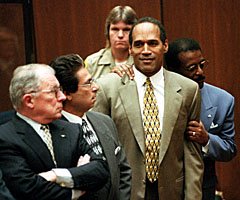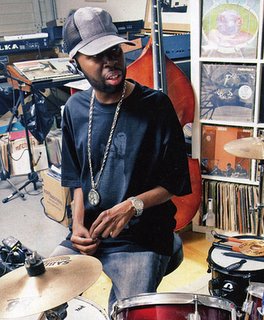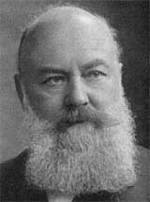
Albums to Listen to While Reading Overwrought Pitchfork Reviews
Story by David Cross
Hi, I was a somewhat surprised that Pitchforkmedia.com would ask me to participate in this. Here's why:
"The devastating paradox of David Cross' pre-recorded comedy: Is it funny that everything Cross says is nauseatingly smug, yelped out in smarmy, supercilious prose? Or is David Cross just a giant fucking asshole?"
"That Cross is such an immensely unlikable live performer-- condescending, defensive, arrogant, patronizing-- is both his greatest asset and his most crippling flaw."
And while the above review of my second cd It's Not Funny is certainly more thoughtful than, "David Cross? Yeah, he's funny" or "He sucks", it's still a bit shitty. "...immensely unlikable"? The paradox is "devastating"? How is it devastating?
And that's just one reviewer, Amanda Petrusich.* There's another one, William Bowers, who claims to: "...having developed a strange, extra-textual concern for David Cross. Likeminded futon-psychoanalysts fret over his fluctuating weight, his fitfulness, and despondence..."
Fretting over my weight? Oh well. But regardless of their opinion of me and/or my act, they've asked me for my Top Ten List®, So here is my contribution to the Top Ten List® For Pitchforkmedia.com
Top Ten CD's That I Just Made Up (and accompanying made-up review excerpts) to listen to while skimming through some of the overwrought reviews on Pitchforkmedia.com
1) While reading over Pitchforkmedia.com's review for the Arcade Fire, here's a brief excerpt: "Our self-imposed solitude renders us politically and spiritually inert, but rather than take steps to heal our emotional and existential wounds, we have chosen to revel in them. We consume the affected martyrdom of our purported idols and spit it back in mocking defiance." May I suggest listening to Until it Happens/You Let it Happen, by Maximum Minimum. The fourth album (not counting the re-release of the first three 7-inches on HugTown Records) reaffirms the band's status as the godfathers of the Taos, N.M. "crying scene." Like a gilded phoenix rising from the toxic ashes of the death of mercurial lead guitarist, Peter Chernin, Maximum Minimum snarls back like a taunted tiger on steroids (also on acid). RATING: 8.2
2) While reading the review of Daft Punk's Human After All: "Ideally, the physics of record reviewing are as elegant as actual physics, with each piece speaking to the essence of its subject as deliberately and as appropriately as a real-world force reacting to an action," is a real albeit brief excerpt. May I suggest listening to Elegant Nuisance by ButterFat 100. With this, their second album since signing with Holive Records, ButterFat 100 return to their psychobilly/emo core roots. Let its volcanic rapture overwhelm you like a 19th century hand-woven blanket made of human hair might have done back in the days when they enjoyed such things. RATING: 5.5
3) While reading the review Animal Collective's Sung Tongs. (Here's a brief excerpt): "'The Softest Voice' layers clear-toned guitar figures upon each other, as Tare and Bear whisper in harmony above, as if singing to the vision peering back at them from the skin of a backwoods creek. The rustic, secretive manner of their voices and the barely disturbed forest around them suggests that whatever ghosts inhabit these woods are only too happy to oblige a lullaby or two. Likewise, the epic 'Visiting Friends' gathers in faceless, mutated ghosts (i.e., oddly manipulated vocalizations from the duo) to hover over their dying fire in visage of nothing better than the tops of trees." Why not listen to As I Became We by Tishara Quailfeather.
The virulent and hermetically sealed pinings of the world's only triple gold selling Native American artist living in an iron lung. It's as if newly dead, and thus still pure angels, reached down into The Virgin Mothers throat and gently lifted out the sweetest and most plaintive sounds man will ever hope to hear in this life. RATING: 7.17
4) While reading the review of Blonde Redhead's Misery Is a Butterfly: "The word 'lush' doesn't quite capture the fluttering whirls of strings, keyboards, and delicately plucked guitar that open 'Elephant Woman'; I'd go so far as to label such enveloping richness of instrumentation 'baroque,' perhaps even 'rococo.'" is but a brief passage. Give a listen to Turndown Service, the forthcoming album by DotCom.com. Hopefully this foray into the electronic sector of the British no-fi/wi-hi scene (with apologies to Dr. Reverend Billy) is only a temporary diversion and not a full-fledged career move for Bix Xhu and friends. With a nod to early Creatures via the Monks, DotCom.com manages to wrench what little empathy one might have for the entire British working class (nothing you wouldn't find at an "Alive With Pleasure" show) and sashays it right up and down Trafalgar Square. RATING: 6.22
5) While reading the review of The Boards of Canada's Music Has the Right to Children: "The incredibly simple melody of the short 'Bocuma' becomes a lump-in-the-throat meditation on man's place in the universe through subtle pitch shifts and just the right mist of reverb. The slow fade-in on 'An Eagle in Your Mind' is the lonesome sound of a gentle wind brushing the surface of Mars moments after the last rocket back to Earth has lifted off." Why not listen to, Only the Proletariat Floss's by Screaming at the Mirror. With a truncated syncopation and approach that rivals only Tosh Guarrez pre "FartFlap", "S.A.T.M" has taken steps to dismantle what was previously only dared mantled by the great Gilda Thrush when she fronted "Cycle Clause". It's as if Genghis Kahn got together for breakfast with Oliver Wendell Holmes and Virginia Wolfe and ordered just a bowl of homemade granola and then skipped out on the check. RATING: 11.-111
6) When you're enjoying the review of the M.I.A. / Diplo album, Piracy Funds Terrorism, Vol. 1. Here's the beginning of that one: "Santa Claus, the Virgin Mary, and Terrence 'Turkeytime' Terrence just got the shaft this holiday season. Why bother with presents? 2005's Tickle Me Elmo was supposed to be a chicken-legged Sri Lankan with so much sex in her self-spun neons you might as well get wasted off penicillin with Willie Nelson at a secret Rex the Dog show." Huh? Check out University of Blunts' Dirty Dirty Dirty Dirty Dirty Dirty. It's like a 505 Groovebox as designed by someone who reads only Braille. Actually, to clarify, only if that same designer got caught in a transformer with Brindle Fly and decided to travel 50 years into the future and bring back what might have sounded retro thirty years from now if the future takes it's more than lugubrious, predictable course. RATING: 4.001
7) Hey, are you reading the review to The Mountain Goats' CD The Sunset Tree": "As one would hope from a songwriter as smart as Darnielle, The Sunset Tree comes from a 19th-century religious song, 'The Tyrolese Evening Hymn'." Why not have the latest Wittgenstein's Mistress CD playing in the background? On Gift Code, WM's latest offering, we find flutes a flutter, strings a stringin' and melotrones a melotronian. In what is likely to be remembered more for its' chorus of "Get on the bed bitch...now!" then it's subtle and rich tapestry woven, (most likely by candlelight) and suffused with an undercurrent of malaise and ennui, the titular track bends, breaks, and ultimately regenerates into a malevolent whirlstrom of angst and twee. RATING: Four Point Six and One Half.
8) Trying to make sense of the review of Autechre, Untitled? It's a one-act play that starts with:
(Sitting in the dormitory room just after class on Thursday, Achilles changes into his gym clothes as his roommate Tortoise bursts through their door in a fit of happiness.)
Tortoise: Achilles, have you seen this?
Achilles: What?
Tortoise: Do you see? Yes? I'm referring to the object, though small in size, quite interesting in stature, I am holding in front of you now.
Achilles: It's a CD.
And ends with:
Achilles: And my point is, if it's driven by form, it's a pretty messy, lazy form-- certainly no more structurally sound than any other software wank music. On top of that, if I'm supposed to "feel" this, to pick up on some obscure metaphysical in-joke, I'm not-- isn't it the job of a good artist to make that shit clear? Either way, it fails for me. Autechre decided to go their own way, fine, you know, just don't expect me to call them "geniuses."
Tortoise: [Sigh] Alright, Achilles, I can see we're going to have to agree to disagree. I'm sorry to have wasted your time.
Achilles: Oh don't worry, dude, just wear headphones when you play that stuff.
(With all apologies to Douglas Hofstadter and Gödel, Escher, Bach: an Eternal Golden Braid, which I'd send you if I had an extra copy.)
Why not give a listen to: Pillow Logics new disc, Treason to Live, a wiry concept album that gives new meaning to the phrase, "Now, I've seen everything!" Ostensibly about a young girl who loses her shoes in a cockfight she mistakenly attends during Thanksgiving 1959, it's really about the universal themes of loss, angst, candy and damp clothing. Taking its cue from the early commercial work of Deloite and Hughey and filtering it through the "I cut myself shaving" piousness of Throm Tillson, Pillow Logic re-works early sock hop chop flop and allows people like me to enjoy enjoying it. RATING: Two T-Shirts and a cup of jizz.
9). Slogging through the review of Emperor X's Central Hug/Friendarmy/Fractaldunes (And the Dreams that Resulted) (sample: "...the aesthetic of Emperor X's recording belies its craft. Homemade and sometimes grungily recorded, the latest record by Chad Matheny's one-man band delivers jitter-- and indie pop that practically gnaws its own arm with excitement") to try to find out if you might like it
Then don't listen to: ThunderPussy When the Wild Birds Sing. You can only shine a turd so many times before it gleans as bright as a six-year-old girl's ass cheek on Christmas morning. ThunderPussy answers the question, How many times does one need to shine a turd before it gleans as bright as a six year old girls ass cheek on Christmas morning? The answer according to ThunderPussy is, 12. 12 is the number of tracks on this cd each one of the same song, "Star Wars!" And they all suck except for the last one which shines just like a six-year-old girls ass on Christmas Morning. It's true. RATING: 4.Point
10). Enjoying the self-referential Franz Ferdinand review which includes the following: "Ryan, that cow is dried up. It's Gordita meat. I've even done the I'm-not-going-to-do-a-concept-review-anymore concept review," I said.
"Hear me out. I'm seeing a comeback for one of your zany characters," Ryan said, making stupid TV-producer gestures with his hands. "I'm seeing the interpretive dancer Santa Schultz, the Revolutionary War soldier Ham Grass, advice columnist Professor Rok, Diapers the glam-loving lab monkey, Justin Davies the bass player of The Hold My Coat, The Bummelgörk, Kelly the Masseuse, Volodrag the Yugoslavian sycophant, Paul Bunyan, Wolfie. Besides, you promised me the Franz Ferdinand review months ago."
Then don't listen to Thar She Blows, the terrible new cd by The Original Apple Dumpling Gang. If you like shitty, regurgitated slop as evinced by the overlauded production team of Dr. Snagglepuss and Oppressor, then you're gonna love this. Daring to delve into his worn out bag of used tricks, Dr. Snagglepuss turns to his old SugarSnaps partner, TreacherousFace ZombieHead, and spits out beats that sound like two dying frogs farting in your face. If that's your idea of an aural good time then you're probably the kind of person that likes early Faust meets pre-post-op Neutron Bitch also meets Blunder (with a nod to Iceland's Achilles Healed) but then a fight breaks out and DNA Groove comes over and separates everybody and quickly escorts Neutron Bitch out through the service entrance where they make love on a pile of day old lettuce (like in the movies). Either way, T.A.D.G. do themselves a disservice by trying to milk some more milk from an aids infested cow called "their old music". All in all it's a big disappointment, but then again if you like aids milk then I guess this is for you. RATING: 2.shit
*One part of Amanda Petrusich review I would like to respond to (and several people made this mistake it wasn't just her) is the misinterpreted intent of the title of my second cd, It's Not Funny, of which she said, "(oh, and the knee-jerk critical reaction to pre-emptive album titles? It's not funny)". It was meant to be a reflection of my feelings about the subject matter I was covering. Like when you're a kid and you're trying to tell people something that's important to you but no one is taking you seriously and everyone keeps laughing and your response might be, "Guys come on!! I'm serious! It's Not Funny!" So there's that for the record. I could quibble about some other stuff but just clearing the title issue is excitement enough for one day.
from Pitchforkmedia.com archives (5/17/05)



 but their troubles are relatively easy to resolve. Tell the man where a job is, and he will take it. Tell the mother where a school is, and she will get her children into it. Other images show us the face of the hard problem: those of the looters and thugs, and those of inert women doing nothing to help themselves or their children. They are the underclass.
but their troubles are relatively easy to resolve. Tell the man where a job is, and he will take it. Tell the mother where a school is, and she will get her children into it. Other images show us the face of the hard problem: those of the looters and thugs, and those of inert women doing nothing to help themselves or their children. They are the underclass.




 I remember seeing two young children on a playground. One of them was crying. The other, a slightly older girl (most likely the older sister) was saying: "You go ahead and cry. You're just mad that you're gettin' what you deserve for doin' what you did!" Again, an expression of action/consequence, and, in this instance, found already as a naturally occurring thought in the mind of a young child. One might say we are wired to interpret life in the light of a law of action/consequence.
I remember seeing two young children on a playground. One of them was crying. The other, a slightly older girl (most likely the older sister) was saying: "You go ahead and cry. You're just mad that you're gettin' what you deserve for doin' what you did!" Again, an expression of action/consequence, and, in this instance, found already as a naturally occurring thought in the mind of a young child. One might say we are wired to interpret life in the light of a law of action/consequence.  Show me a contemporary Hollywood movie that does not appeal to ideas of "choice" and "decisions" whenever it tries to get wise. The idea is that, in front of all people lay a certain number of anticipated options, A, B, C, D, and the like. Usually most people think there are either two, or three options, and that they have to figure out which one is the best, or the right choice, etc. Subtext: "If I choose A, things will work out best for me...I just have to figure out which choice is A."
Show me a contemporary Hollywood movie that does not appeal to ideas of "choice" and "decisions" whenever it tries to get wise. The idea is that, in front of all people lay a certain number of anticipated options, A, B, C, D, and the like. Usually most people think there are either two, or three options, and that they have to figure out which one is the best, or the right choice, etc. Subtext: "If I choose A, things will work out best for me...I just have to figure out which choice is A."  (For me, it runs like this: "I got a 5% cashmere-blend sweater...but what I didn't realize at the time was that I really just needed to get a 100% pure cashmere sweater from the get-go,...but then I get the pure cashmere sweater, and I love it, don't get me wrong, it's just not the right color; it doesn't look or fit the way I thought it would..." Suddenly I've got a parenthetical "63" next to my ebay username! You think I could make this story up? This is the stuff that all tragedy is made of. Missed opportunity, and/or next opportunity, etc. Choices, decisions, choices..."I can't win!" Why do I need a gosh-darn vacation in order to recover from the highly-anticipated vacation I finally got to take? Same thing. And the thing is not a fun thing, no, the thing is an ugly thing, my life, I hate the thing. Why don't I learn from my mistakes? Stupid Romans 7 again!)
(For me, it runs like this: "I got a 5% cashmere-blend sweater...but what I didn't realize at the time was that I really just needed to get a 100% pure cashmere sweater from the get-go,...but then I get the pure cashmere sweater, and I love it, don't get me wrong, it's just not the right color; it doesn't look or fit the way I thought it would..." Suddenly I've got a parenthetical "63" next to my ebay username! You think I could make this story up? This is the stuff that all tragedy is made of. Missed opportunity, and/or next opportunity, etc. Choices, decisions, choices..."I can't win!" Why do I need a gosh-darn vacation in order to recover from the highly-anticipated vacation I finally got to take? Same thing. And the thing is not a fun thing, no, the thing is an ugly thing, my life, I hate the thing. Why don't I learn from my mistakes? Stupid Romans 7 again!)  Would that we could all become so appropriately unbound. When choice dies its painful death, right ethics begin to flow. I promise. As Fitz Allison says, "you know you're getting close to the Gospel when people start worrying about things atinomian."
Would that we could all become so appropriately unbound. When choice dies its painful death, right ethics begin to flow. I promise. As Fitz Allison says, "you know you're getting close to the Gospel when people start worrying about things atinomian."



 (written in response to a question asked about the term: "Children of God")
(written in response to a question asked about the term: "Children of God")








 click this link:
click this link:




